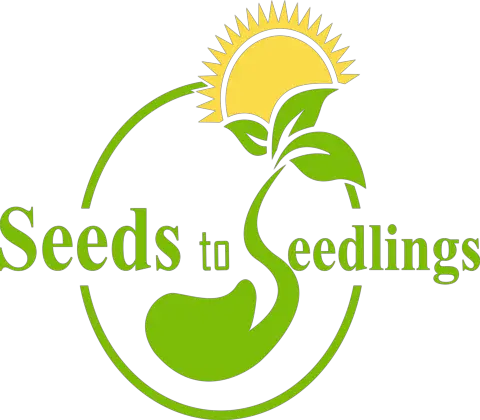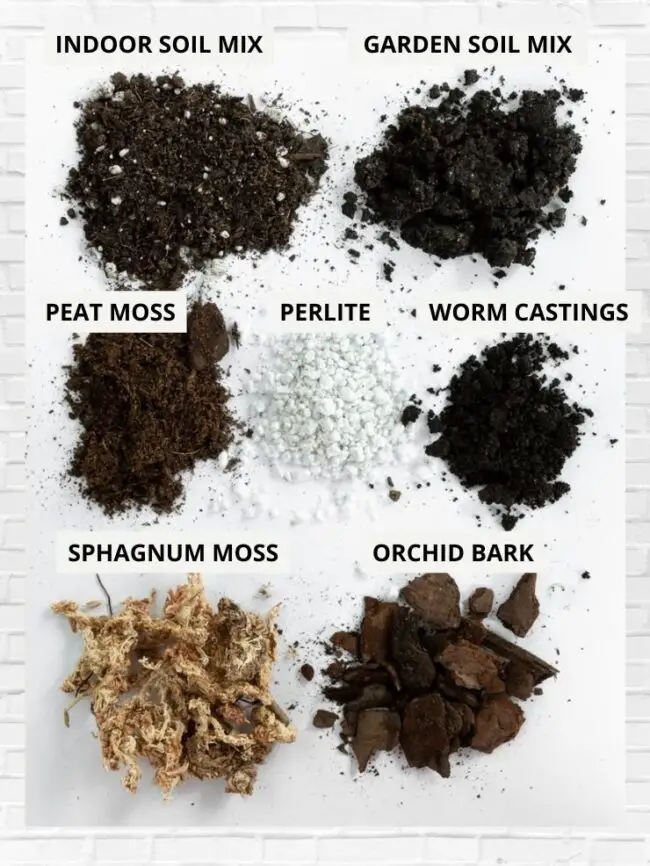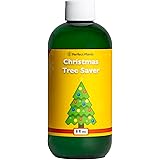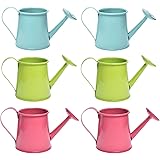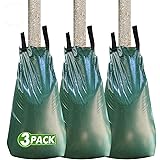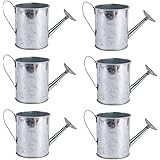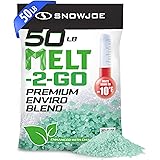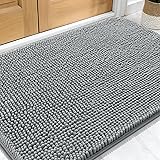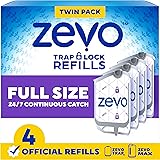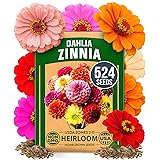Wondering if you can use garden soil with your houseplants? The short answer is yes, but there are a few things you need to consider. While garden soil can provide some nutrients, it’s important to understand the differences between garden and potting soil. Garden soil contains a variety of organisms, which can be beneficial but may also introduce pests or diseases to your indoor plants.
Additionally, garden soil tends to be heavier and doesn’t drain as well as potting soil, which can lead to root rot. In this article, we’ll delve deeper into the topic and explore the best practices for using garden soil with your houseplants. So, let’s get started!
Can You Use Garden Soil with Houseplants?
Houseplants are a delightful addition to any home, bringing life and beauty to indoor spaces. As a plant parent, it’s crucial to provide your green friends with the right growing conditions, and one key aspect is the type of soil you use.
While garden soil may seem like a convenient option, it’s essential to understand the differences between garden soil and potting mix and how they can impact the health of your houseplants.
The Differences between Garden Soil and Potting Mix
Garden soil and potting mix may appear similar, but they have distinct characteristics that make them suitable for different purposes. Understanding these differences is crucial to ensure your houseplants thrive.
Garden Soil:
Garden soil is typically found in outdoor gardens, where it interacts with a variety of elements like sunlight, air, and rain. It contains a mixture of organic matter, minerals, and microorganisms, providing a natural habitat for plants to grow.
While garden soil is excellent for outdoor plants, it may not be the best choice for your houseplants due to the following reasons:
1. Drainage: Garden soil has a dense texture that retains moisture, which can lead to waterlogging and root rot in houseplants that prefer well-draining conditions.
2. Compaction: Over time, garden soil may become compacted and lose its ability to provide adequate aeration to plant roots, resulting in stunted growth.
3. Organic Matter: Garden soil often contains a high amount of organic matter that can decompose quickly in indoor environments, leading to unpleasant odors and the growth of molds or fungi.
Potting Mix:
Potting mix, also known as potting soil or soilless mix, is specifically formulated for container gardening.
It consists of a blend of lightweight materials that provide optimal growing conditions for houseplants. Here are some reasons why potting mix is a more suitable choice for indoor plants:
1. Drainage: Potting mix is designed to provide excellent drainage while retaining enough moisture for the plant’s roots. This helps prevent waterlogging and promotes healthy root development.
2. Aeration: The lightweight nature of potting mix ensures that air circulates freely around the plant’s roots, preventing compaction and enabling better nutrient absorption.
3. Consistency: Potting mix is carefully formulated to have a consistent texture, free from weed seeds, pathogens, and pests that can affect plant health.
The Impact of Garden Soil on Houseplants
Using garden soil for your houseplants may have various consequences that can negatively impact their overall health and growth. Here are some potential issues:
1. Poor Drainage: The dense nature of garden soil can cause excess water retention, leading to root rot and fungal diseases. Houseplants that prefer well-draining soil, such as succulents or cacti, may suffer in this environment.
2. Nutrient Imbalance: Garden soil may contain an imbalance of nutrients for houseplants. Additionally, the decomposition of organic matter in garden soil can result in nutrient deficiencies or toxicities that affect plant growth.
3. Pest Infestation: Garden soil can harbor pests, such as insects, worms, or weed seeds, which can easily transfer to your indoor plants. These pests can damage the roots or foliage of your houseplants.
4. Inconsistent Texture: Garden soil often varies in texture, with different particles sizes and densities. This inconsistency can affect water distribution, air circulation, and nutrient absorption for houseplants, leading to uneven growth and potential root issues.
Alternatives to Garden Soil for Houseplants
To provide your houseplants with the best growing conditions, it’s recommended to use a suitable potting mix. Here are some alternatives to consider:
1. Commercial Potting Mix: Potting mixes available in garden centers or nurseries are specifically formulated for container plants. They provide a lightweight, well-draining medium that promotes healthy growth.
2. DIY Potting Mix: You can create your own potting mix by combining various components like peat moss, perlite, vermiculite, and compost. This allows you to customize the mix based on the specific needs of your houseplants.
3. Coco Coir: Made from the fibers of coconut husks, coco coir is an eco-friendly alternative to garden soil. It has excellent water retention and aeration properties, making it an ideal medium for houseplants.
4. Soilless Mixes: Soilless mixes, such as those made from sphagnum moss or peat moss, provide a lightweight and sterile option for houseplants. These mixes are free from pests, weeds, and diseases.
Tips for Using Potting Mix Effectively
Now that you understand the importance of using the right potting mix, here are some tips to ensure you make the most of it for your houseplants:
1. Choose the Right Mix: Select a potting mix that suits the specific needs of your houseplants. Consider factors such as drainage requirements, nutrient content, and pH levels.
2. Use Proper Containers: Use containers with drainage holes to prevent water from accumulating at the bottom, ensuring adequate aeration and drainage for the roots.
3. Repot Regularly: Houseplants may outgrow their pots over time, leading to root-bound conditions. Repotting them in fresh potting mix allows roots to expand and access the necessary nutrients.
4. Watering Practices: Follow proper watering practices based on the moisture requirements of your houseplants. Avoid overwatering, as it can lead to root rot, but also be mindful not to let the potting mix dry out completely.
While garden soil may be beneficial for outdoor plants, it is generally not suitable for houseplants. The differences in drainage, compaction, and nutrient content can negatively impact the overall health and growth of your indoor plants. Opting for a quality potting mix or creating your own soilless mix provides the ideal growing conditions for your houseplants, ensuring they thrive and bring life to your indoor spaces. So next time you’re considering what to use for your houseplants, remember that garden soil should be reserved for outdoor gardening, while potting mix is the best choice for your indoor green companions.
Frequently Asked Questions (FAQs)
Using garden soil for indoor plants can lead to several problems:
Poor Drainage: Garden soil tends to be denser and can compact over time, leading to poor drainage. This can result in waterlogged conditions, encouraging root rot.
Inconsistent Nutrients: Garden soil doesn’t always provide the consistent nutrients that indoor plants need.
Pathogens and Pests: Garden soil can introduce soil-borne diseases and pests to your indoor plants, which can be harmful in a confined environment.
pH Imbalance: The pH levels in garden soil can vary and might not be appropriate for indoor plants.
Generally, it’s better to use potting soil for potted plants. Garden soil tends to compact, which can impede drainage and aeration. It can also contain weed seeds, pests, and diseases, which are not ideal for potted plants.
Miracle Gro garden soil is generally designed for outdoor garden beds and not recommended for indoor potted plants.
It contains nutrients and additives that might not be suitable for the indoor environment. Moreover, the soil may not drain well in a pot, leading to waterlogging and root rot.
Yes, it does matter. Indoor plants generally do best in specially-formulated potting soils that offer good drainage, aeration, and consistent nutrients.
Potting soils are often lighter and contain a mix of ingredients like peat moss, vermiculite, and perlite to help the soil drain better and allow roots to breathe.
While Miracle Gro garden soil is designed for in-ground use, it’s generally not recommended for potted plants.
The soil doesn’t offer the drainage and aeration that potted plants need. For the best results, use a potting mix designed for container gardening.
While it’s possible to mix garden soil and potting soil, it’s generally not advisable because you can still run into issues of poor drainage, pests, and diseases. If you decide to go this route, make sure to sterilize the garden soil to kill any pathogens and consider adding additional components like perlite to improve drainage.
However, it’s typically easier and more effective to use a high-quality potting mix designed for your specific types of plants.
Final Thoughts
Using garden soil for houseplants may seem like a convenient option, but it is not recommended. Garden soil is typically heavy, dense, and may contain pests, diseases, or weed seeds. This can lead to poor drainage and root rot, ultimately harming your houseplants.
Instead, it is best to use a high-quality potting mix specifically formulated for indoor plants. These mixes provide the necessary nutrients, drainage, and aeration for optimal growth.
So, when it comes to your houseplants, it’s important to prioritize their well-being and choose the right soil for them. Can you use garden soil with houseplants? The answer is a resounding no.
Auto Amazon Links: No products found.
VEVOR Tree Watering Bags Slow Release, 4 Pack 16 Gallons Tree Watering Ring, Reusable Refillable Tree Irrigation Ring Water Bags, Heavy Duty Watering System for Shrub Tree Root Drip Irrigation
$29.99 (as of February 26, 2026 06:30 GMT +00:00 - More info- Product prices and availability are accurate as of the date/time indicated and are subject to change. Any price and availability information displayed on [relevant Amazon Site(s), as applicable] at the time of purchase will apply to the purchase of this product.
Perfect Plants Christmas Tree Saver 8oz. | Easy Use Xmas Tree Preserver Food | Have Healthy Green Christmas Trees All Holiday Season
$16.99 (as of February 26, 2026 06:30 GMT +00:00 - More info- Product prices and availability are accurate as of the date/time indicated and are subject to change. Any price and availability information displayed on [relevant Amazon Site(s), as applicable] at the time of purchase will apply to the purchase of this product.
Mini Decorative Watering Can, Set of 6, Height 1.97 inch, Cute Metal Jug for Hand Crafts,Garden Theme Parties and Home Decor
$8.99 (as of February 26, 2026 06:30 GMT +00:00 - More info- Product prices and availability are accurate as of the date/time indicated and are subject to change. Any price and availability information displayed on [relevant Amazon Site(s), as applicable] at the time of purchase will apply to the purchase of this product.
Remiawy Tree Watering Bag, 20 Gallon Slow Release Watering Bag for Trees, Irrigation Bag Made of Durable PVC Material with Zipper (3 Pack 5-8 Hours Releasing Time)
$31.58 (as of February 26, 2026 06:30 GMT +00:00 - More info- Product prices and availability are accurate as of the date/time indicated and are subject to change. Any price and availability information displayed on [relevant Amazon Site(s), as applicable] at the time of purchase will apply to the purchase of this product.
Mini Handmade Decorative Watering Can, Set of 6, Height 2.36 inch, Cute Metal Jug for Hand Crafts,Garden Theme Parties,Home Decor and Accessories of Refrigerator Magnets (Silver, Height 2.36 inch)
$15.99 (as of February 26, 2026 06:30 GMT +00:00 - More info- Product prices and availability are accurate as of the date/time indicated and are subject to change. Any price and availability information displayed on [relevant Amazon Site(s), as applicable] at the time of purchase will apply to the purchase of this product.
TERRO Ant Killer Bait Stations T300B - Liquid Bait to Eliminate Ants - Bait System - 12 Count Stations for Effective Indoor Ant Control
$11.97 (as of February 26, 2026 10:19 GMT +00:00 - More info- Product prices and availability are accurate as of the date/time indicated and are subject to change. Any price and availability information displayed on [relevant Amazon Site(s), as applicable] at the time of purchase will apply to the purchase of this product.
Snow Joe Premium Enviro Blend Ice Melt, Green-Coated Deicer Crystals, 50 lb - Safer Melter for Vegetation, Concrete & Metals w/ Anti-Corrosion Calcium Magnesium Acetate
$50.99 (as of February 26, 2026 10:19 GMT +00:00 - More info- Product prices and availability are accurate as of the date/time indicated and are subject to change. Any price and availability information displayed on [relevant Amazon Site(s), as applicable] at the time of purchase will apply to the purchase of this product.
OLANLY Dog Door Mat for Muddy Paws 30x20, Absorbs Moisture and Dirt, Absorbent Non-Slip Washable Doormat, Quick Dry Chenille Mud Mat for Dogs, Entry Indoor Entryway Carpet for Inside Floor, Grey
$9.48 (as of February 26, 2026 10:19 GMT +00:00 - More info- Product prices and availability are accurate as of the date/time indicated and are subject to change. Any price and availability information displayed on [relevant Amazon Site(s), as applicable] at the time of purchase will apply to the purchase of this product.
Zevo Flying Insect Trap Official Refill Cartridges - Fits Both Zevo Trap & MAX Indoor Fly Trap - Authentic Trap+Lock Technology to Catch Gnats, House & Fruit Flies (4 Official Refill Cartridges)
$14.97 (as of February 26, 2026 10:19 GMT +00:00 - More info- Product prices and availability are accurate as of the date/time indicated and are subject to change. Any price and availability information displayed on [relevant Amazon Site(s), as applicable] at the time of purchase will apply to the purchase of this product.
HOME GROWN Zinnia Dahlia Seeds Pack for 2026 Non GMO 524 Flower Seeds | Vibrant Zinnia Elegans for Pollinator Gardens, Borders & Containers | Easy-to-Grow Outdoor Blooms
$6.99 (as of February 26, 2026 10:19 GMT +00:00 - More info- Product prices and availability are accurate as of the date/time indicated and are subject to change. Any price and availability information displayed on [relevant Amazon Site(s), as applicable] at the time of purchase will apply to the purchase of this product.
